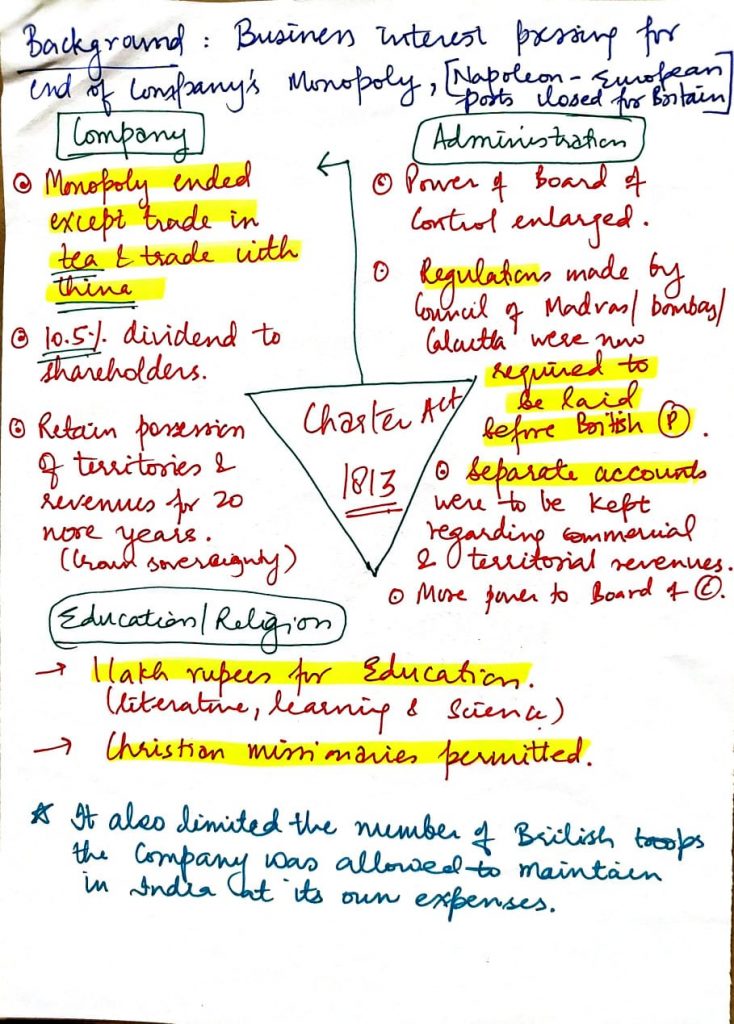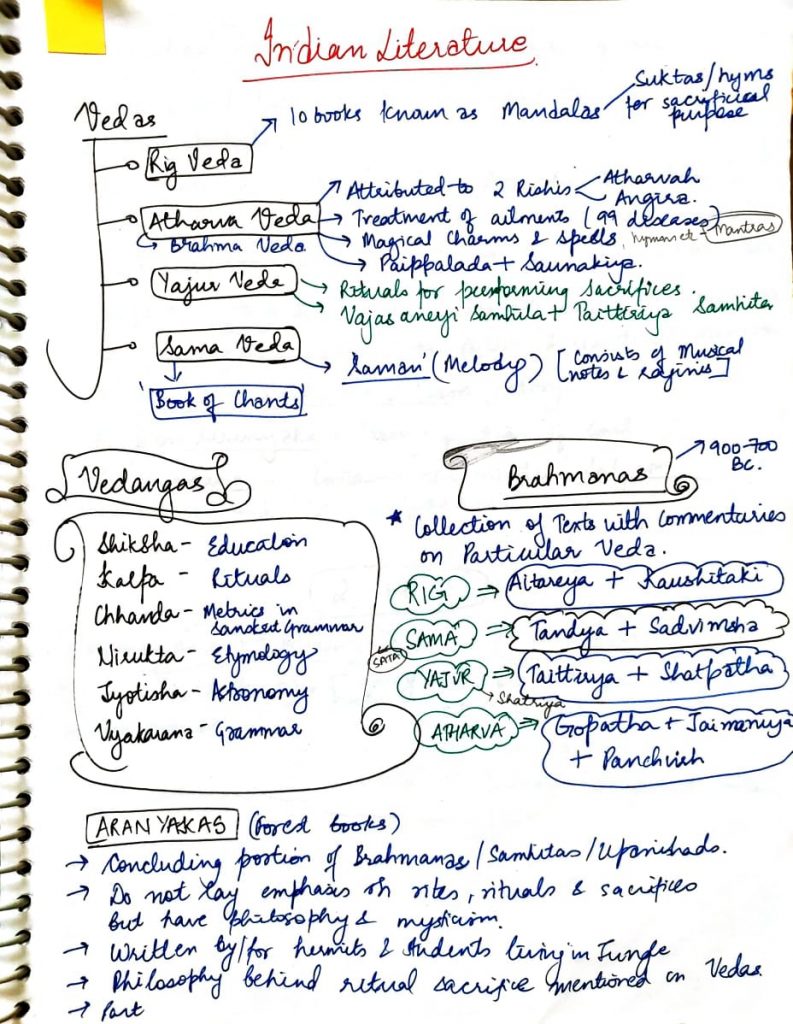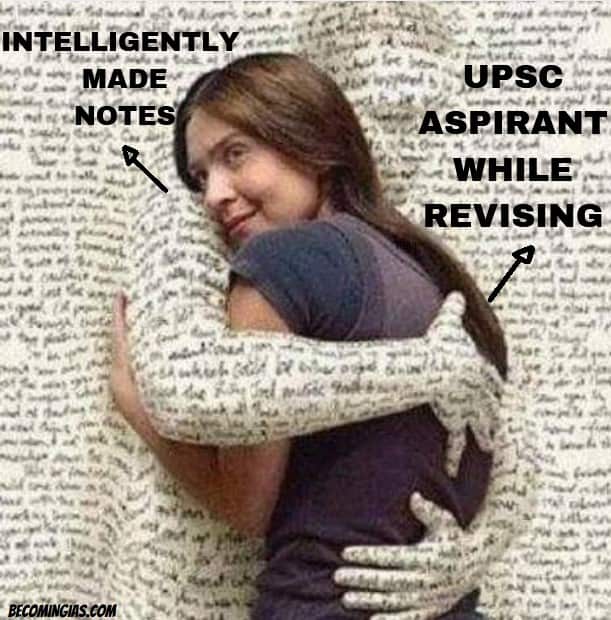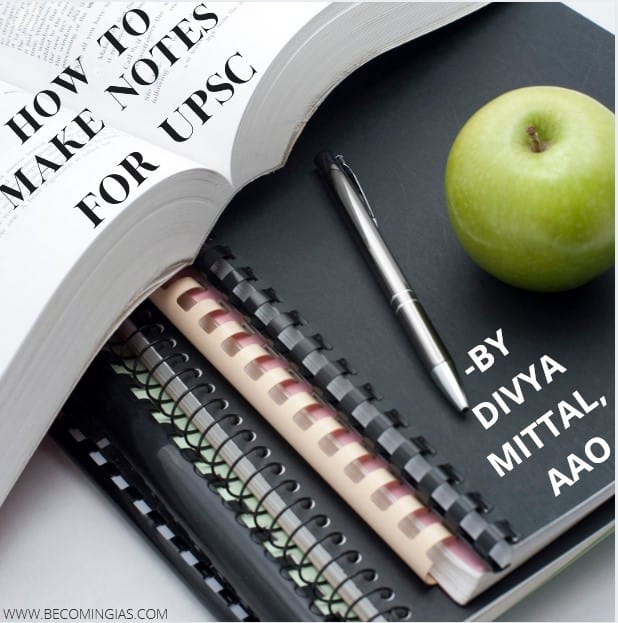Making notes for UPSC is an art – some people are naturally better at it than others. While strategies and learning styles may vary widely, what’s common to all UPSC aspirants is that they must make notes to condense the vast syllabus of this exam.
Even though making notes for UPSC is inescapable, no one teaches you exactly how to do it intelligently. The purpose of this article is to address this issue once and for all.
PQN Syndrome while making notes for UPSC
Let’s first take a quick quiz to figure it out if you have PQN (Poor-Quality Notes) syndrome-
- Do your notes ends end up being bulkier than you expected them to be?
- Do you have trouble understanding your own notes at times?
- Do you feel the need to refer to original content/book often while going through your notes?
- Do you often copy & paste from online documents to your digital notes?
- Do you find it difficult to revise your notes?
- While revising, do your notes appear to make the content more complex rather than simplified?
If your answer is yes to more than 3 of the above 6 questions, you might have the PQN syndrome. It is a surprisingly common syndrome which effects 8 out of 10 aspirants leading to an annual loss of thousands of wasted minutes each year. But don’t worry! It is curable.

The most common cause of the PQN syndrome is not understanding the ultimate purpose for which you make notes for UPSC. Intelligently made notes serve to simplify, condense, digest, consume, process and remember vast amounts of information, in the shortest amount of time possible.
- Notes are snapshots. Notes for UPSC are like condensed images which are meant to help you recall relevant information. Exactly like photographs bring back memories of past events when you look at them, notes are your mind’s content about a topic rendered onto paper for easier recall. This includes not just the superficial details (Facts like names, dates etc.) but also the deeper, conceptual meaning of the content.
- Intelligently made notes are designed for repeated revisions. During times of revisions, you want the entire syllabus to be recalled from your memory in the shortest possible amount of time. This allows for repeated revisions, which if you are a serious aspirant, you know is something very important.
- Good notes help in understanding as well as recall. Making notes for UPSC is not just about remembering data but about creating a map of your conceptual understanding about a topic. Intelligent notes help you consume the information effectively in easy-to-understand digestible chunks.
Here is a page from my Polity notes for UPSC-

How to control Quantity of Notes for UPSC
More often than not, you will find your UPSC notes to be heavier than you expected them to be especially when it comes to dynamic portions in the syllabus. With a syllabus which appears to be infinite, you are not sure what may turn out to be important. So, you end up writing everything you think is important. This defeats the very purpose of making notes. Notes are like ‘Salt in a curry’. Add too much of it and you can no longer consume the curry itself. So, what is the magic secret to ‘just the right amount’? Here is the recipe-
- Understand the UPSC syllabus– Make sure you are very comfortable with the UPSC syllabus. As comfortable as you can be! Break down different portions in the syllabus and structure your notes accordingly. For example, in current affairs, it’s not a good idea to prepare notes date wise. Not only will there be overlaps and repetitions, there won’t be any linkage with syllabus. In some time, you will completely lose track of what’s part of syllabus and what’s not. Your notes will end up being bulky which will practically render them useless. So understand your syllabus and make a classification which suits you.

2. No Haste: Remember the UPSC examination is a marathon not a sprint. It is neither desired nor advisable to start making notes on the Day 1 of your preparations. Take your time analyzing what is important and what is not. Go through the Previous Year Questions. When we read something for the very first time, everything seems important making your notes bulkier than they need to be. Give a couple of readings to your content before jumping to writing notes. It will prevent you from writing unnecessary things in your notes. Once you understand the exact requirement of the examination, it is easier to weed out unwanted information. Once you are thorough with your original source, you will not feel the urge to write everything down.
3. Avoid Copy Paste: One of the most mischievous culprit behind bulky notes is the habit of copying content from online sources onto our notes. At that point, it seems like a very fruitful exercise. In no time, you will find your digital notes running into hundreds of pages and a couple of thousands of words. Even in handwritten notes, we tend to reproduce books in our notes which makes the notes bulky and revision impossible. This is counterproductive. Limit your notes according to the requirement of the examination. Use your own language!
How to control Quality of Notes for UPSC
Imagine the following scenario: You are pretty convinced that your Geography notes are ready. You picked up your NCERT, you read the chapter and then wrote down the important points. But when you pick them up for revising, you realize that you are unable to truly understand the concept. So you have to pick the book and read the whole thing again. Why does this happen? You may have fallen victim to ‘Passive Note making’.

It is nearly impossible to revise everything from the original source one day before the examination. Following tips will ensure that the quality of your notes is top-notch and your notes serve their destined purpose-
- Engross yourself in ‘Active’ note making: Engage with the subject. Rather than just writing things down, try to understand the concept and then write them in your own words. Take your time but do it right! Next time you pick up those notes, there won’t be a need to refer to the original source again. Good quality notes are self-explanatory. The more you engage with your topic, better is the quality of the notes you generate.
2. Be creative: Note-making is a very personal thing. There is no ‘ideal’ way of making notes for UPSC. Throw in those tables, flow-charts, maps and diagrams. Make your notes graphical. Whatever helps you remember! If making a cartoon helps you remember the concept, then go ahead and doodle. It’s your space. Remember your end goal is to easily digest the bulky content. Include examples that help you simplify complicated topics.
Here is a page from my Art & culture notes for UPSC –

3. Be Consistent: Rome was not built in a day and nor will be your notes. Note-making is a routine exercise. Pace yourself. You cannot collect a week’s newspaper and do the entire note-making on a Sunday afternoon. That’s not how it works. Do not write notes just for the sake of ticking a box. Note-making has to go simultaneously with your learning. It has to be integrated with your preparation and your understanding of a particular theme. Once you engage with your content on a regular basis, the quality of your notes is bound to improve.
CONCLUSION
Note making is something which takes up a lot of time. But it is a worthwhile investment.
The above suggestions will make sure they are worth the time you spent making them. Remember that notes for UPSC are not a ‘make and forget’ type of deal. Periodic revision of the notes is very important.
The more times you go through your notes, the more you will be able to grasp the topic better. You will have to continuously engage with your notes to increase your understanding, knowledge and critical thinking. So make sure your notes stay flexible. Don’t forget to leave those margins on the side in case you need to add some details later.

Last but not the least, do not compare your notes with others. Do not change your style now and then just because somebody told you a ‘perfect’ way of making notes. Do not lose heart if your notes making style is different from so and so topper.
Enjoy the process, achieve the directed goal. Nobody can take it away from you!
Comment below to let me know what you found to be helpful in this article and let me know your pain-points when it comes to making notes for UPSC!
– Divya Mittal, AAO (Assistant Audit Officer), Cleared SSC CGL 2016, IAAD batch of 2018.

Their inclusion has added a new dimension to the game, offering players more choices in how they approach their duels. yugioh master duel new account!
Thank you so much mam.it is really helpful for aspirants.now I leaned how to master the art of note making.
Thank you ma’am, My notes are usually bulky but did not know how to reduce the content but from this I get sot some ideas
It’s really helpful sir. I prepared my notes by the help of digital media. But i couldn’t to remember all the notes i were leraned. Thank you Sir for giving this tips.
You are most welcome. Kindly let me know if you have any specific query regarding making notes.